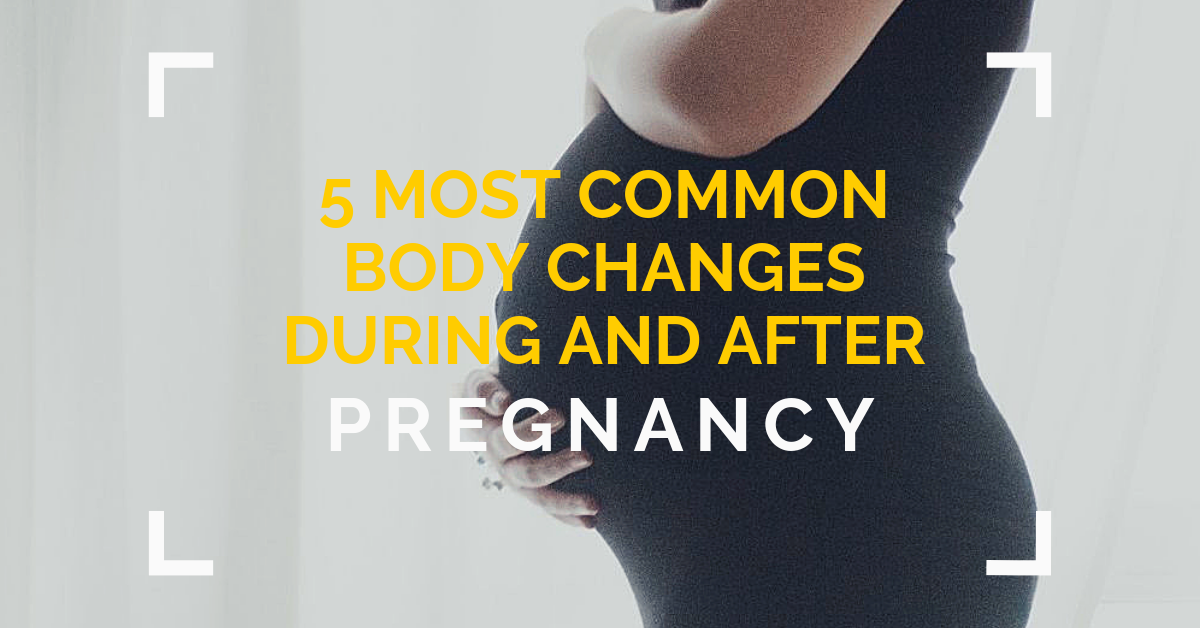
Pregnancy is an amazing and life-changing event, but also an extremely “body-changing” process.
How exactly does pregnancy change our body and what is the best way to minimize its long-term undesirable effects?
Here are the 5 most common body changes during and after pregnancy:
1. Weight Gain
You’re going to gain much needed weight during pregnancy to support both you and the baby, but it won’t just be in the belly region. Your body is trying to prepare for the worst case scenarios and will try to add a protective fat layer that it will burn if food isn’t readily available.
With the weight gain, you may also get stretch marks. Dr. Auffant assures moms that it’s not something to stress about as it’s not something we can control.
2. Hair and Skin
Dr. Jessica Auffant, an obstetrician and gynecologist, says that during pregnancy, you’ll find that your hair grows faster than it usually does and you’ll experience lesser fallouts. However, after you have given birth, you may start losing hair faster than ever before, due to your changing hormone levels. But don’t worry, Dr. Auffant assures this change is only temporary and will go back to normal once your hormones settle.
In terms of skin changes, you may notice some hyperpigmentation like melasma or chloasma, commonly known as the mask of pregnancy, marked by dark patches that appear on the face or neck, as well as linea nigra, commonly called the pregnancy line, where a dark line runs through your abdomen between the navel and pubic bone. You may also experience acne breakouts and rashes.
3. Breast Changes
Your breasts will also enlarge in preparation for breastfeeding your child. Your nipples and areolas might also darken in color, due to your elevated hormone levels, but will most likely revert to their original color over time after giving birth.
4. Pelvic Health
Vaginal birth can be traumatic for your pelvic muscles. Pelvic damage left untreated can lead to difficulty in bowel movements, urinary incontinence, and even pelvic organ prolapse.
Experts recommend undergoing physical therapy in the early stages and throughout your pregnancy to help prepare your pelvic muscles for birth. It is also important to carry on physical therapy into the postpartum stage so you can get back to your normal lifestyle as quickly as possible.
5. Mental Health
Your ever changing hormone levels during and after pregnancy has some effects on your mental health as well. Dr. Auffant says that after you have given birth, it is possible for you to experience postpartum depression. This is a condition that many women go through. It exhibits symptoms very similar to regular depression and if you think you may be experiencing it, please seek a professional.


